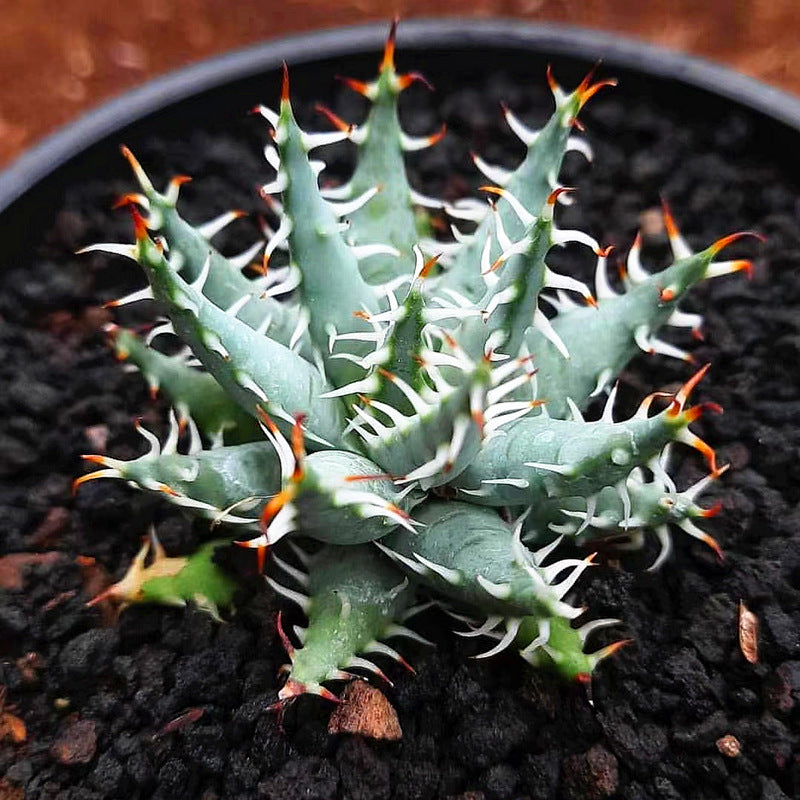Plant Type: Perennial Flowering Plants -> Cacti, Succulents, and Succulent Plants
Biological Classification: Aloe Genus
Origin: Namibia
Variety Description:
Morphological Characteristics: Sometimes creeping stems, up to 60cm long, with single or clustered semi-circular leaf rosettes. Leaves are triangular-lanceolate, very thick, almost conical at the apex, 8-16cm long, 4cm wide. Grayish-green with black spines at the top, 5-8 black teeth at the keel of the leaf back, teeth on the margin and surface of the leaf, fleshy, sometimes curved. New leaf teeth are light green, while old leaf teeth are black or brown. The unbranched inflorescence is about 1m tall, with red or white flowers tinged with yellow and green at the tip.
The ideal growth temperature for the Aloe Erinacea is 15-25°C. It needs to grow vigorously at the appropriate temperature. During cultivation, small fluctuations in temperature have little effect, but significant changes should be avoided. During winter maintenance, the temperature should be adjusted to at least 5°C to prevent frost damage. Continuous low temperatures can easily freeze the plant, and extremely low temperatures can even cause the plant to die.
Propagation Method: It can be propagated by seeds. Asexual reproduction is difficult, but Japanese experts suggest vertically cutting the leaf rosette from the top and then placing a few small stones in the incision. After some time, shoots will emerge from the incision, which can then be taken out and used for propagation.
Cultivation Points: During cultivation, it is important to note that growth stagnates in summer, so watering should be slightly reduced. In winter, the temperature should be maintained above 5°C, and the plant should receive sufficient sunlight. Other cultivation practices can follow general aloe cultivation methods.
Application Value: The Aloe Erinacea is a famous representative of small ornamental aloes, characterized by its unique leaf shape and fleshy teeth, resembling pointed wolf fangs. It grows very slowly and is suitable for home potted plants.
